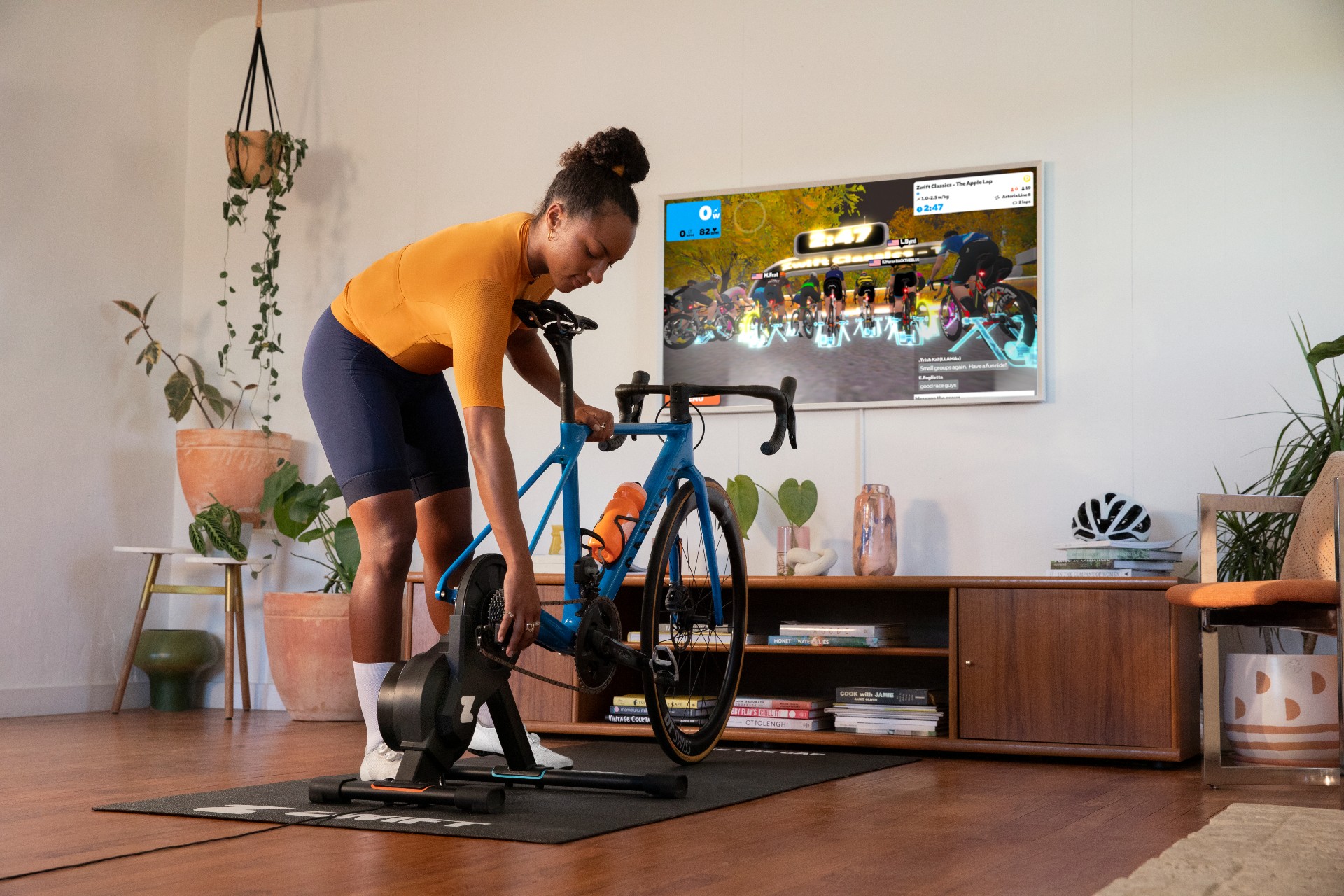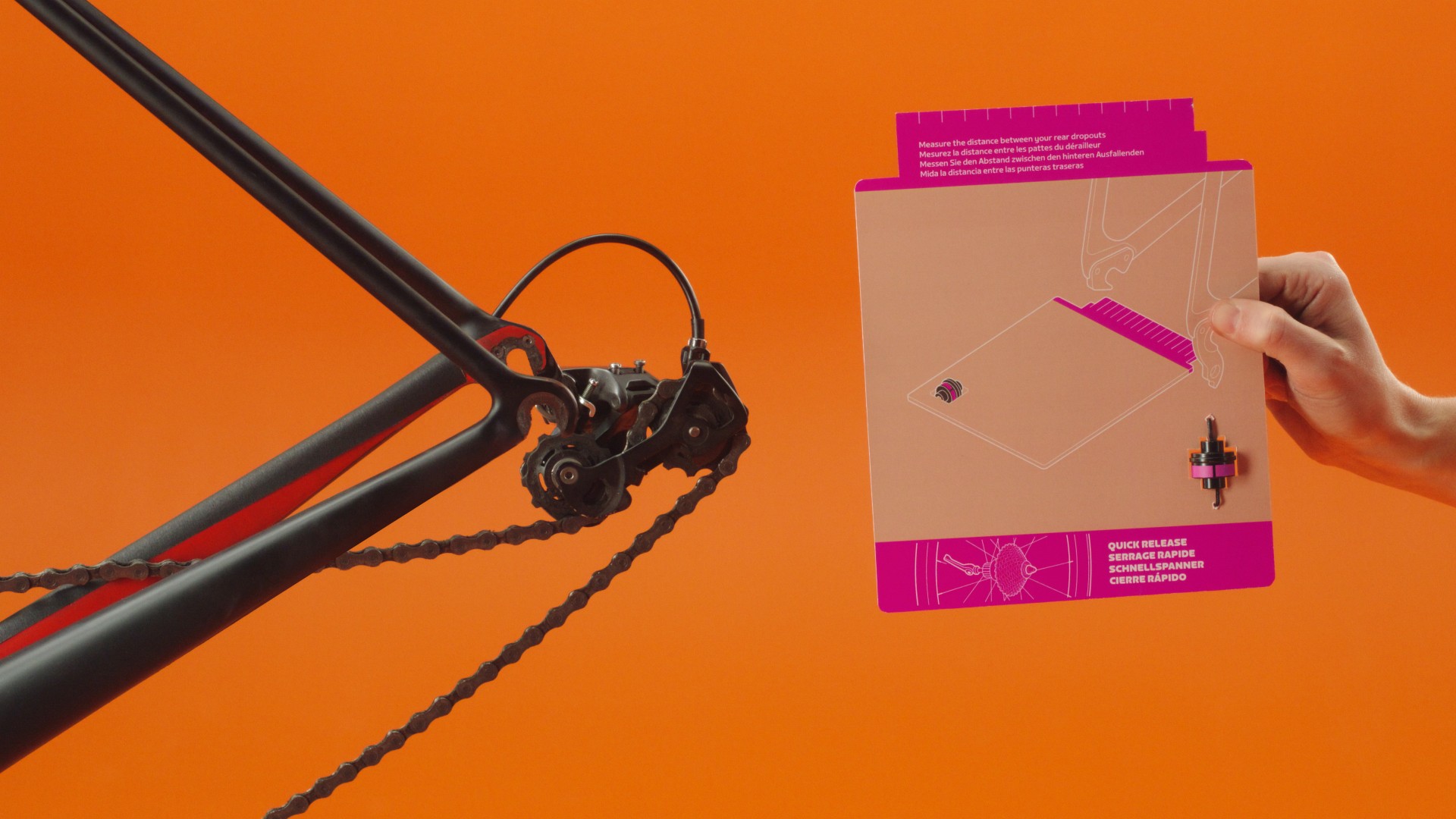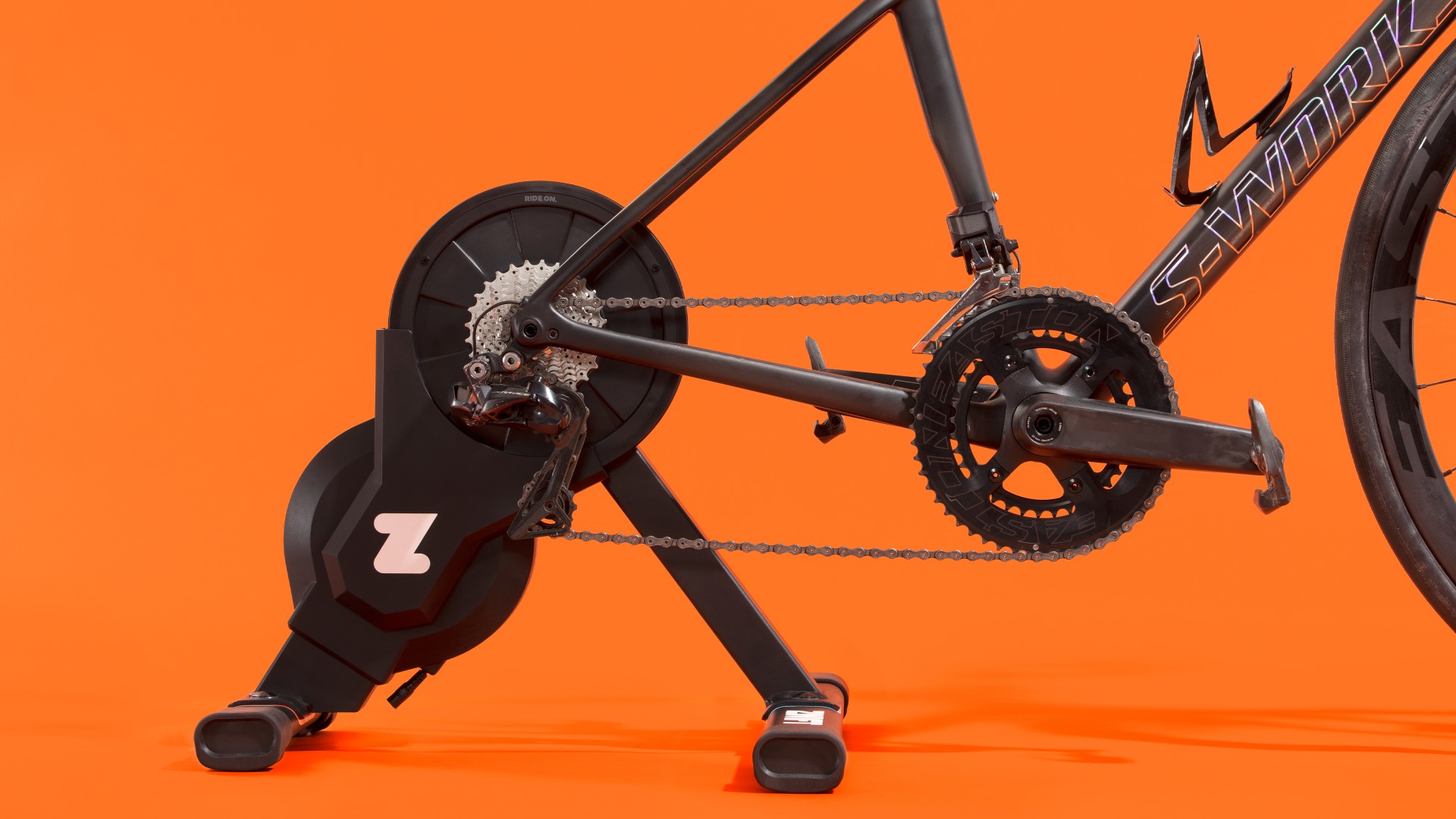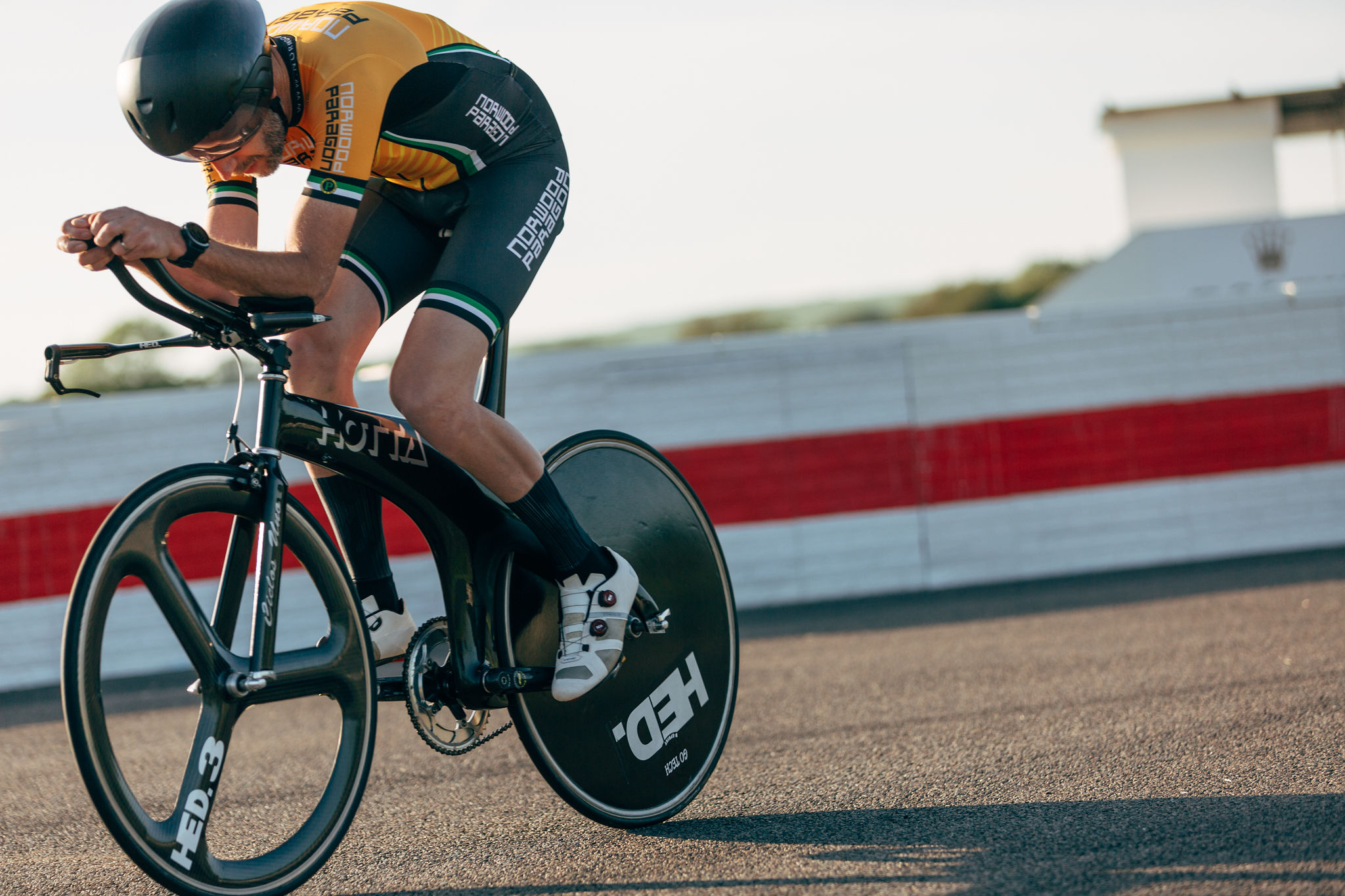New £449/$499 Zwift Hub smart trainer: idiot-proof and cheap is the new high-tech and expensive
Global online cycling platform ditches plans for a high-end smart bike and goes back to basics with a user-friendly turbo


Zwift has launched its first smart trainer, the Zwift Hub. Priced at $499/£449, including a pre-installed cassette, the global online cycling platform has decided that what the current economic climate needs is an affordable, user-friendly direct-drive trainer and not the super-sleek smart bike it was originally planning.
Zwift’s mission, it says, is to make more people more active more often - and the new trainer is designed to help it deliver exactly that.
Clearly, as well as taking the cost-of-living crisis into consideration, Zwift has looked at the total integration of hardware and software of the likes of Peloton, and realised that if it’s to make itself accessible to fitness enthusiasts as well as cyclists it has to simplify its setup process.

Eric Min, Zwift CEO and co-founder, says: “When we started on our hardware journey, it was important that the hardware served the primary purpose of accessing and elevating the core game experience. Getting set up on Zwift hasn’t been an easy process. It can be hard to know exactly what equipment you need to Zwift, and that equipment can be costly.”

To save less mechanically minded users the trouble of buying and installing a cassette themselves, the Zwift Hub will ship with a cassette pre-installed (8, 9,10,11 or 12-speed) at no extra cost. Customers specify the number of gears they require at checkout, meaning the Zwift Hub comes with everything needed to head straight off into Watopia with minimum fuss. The freehub is compatible with Shimano and SRAM cassettes. Campagnolo is not supported yet, but Zwift says it hopes to offer a compatible hub in the next few months.
The Zwift Hub's two feet need to be bolted in place (made simpler by colour coding and a pattern designed to help users align them properly), but that's the only self-assembly required.

Colour-coded card templates are even included in the packaging so that users can easily measure their rear dropout spacing when deciding which thru-axle or QR adaptors they need.
The latest race content, interviews, features, reviews and expert buying guides, direct to your inbox!
As for the specs, accuracy is +/- 2.5%, which means it isn’t eligible for use in top-level esports, which require a minimum of 2% but, as Zwift has made clear, that’s not the market it’s going after with the Hub.
Maximum resistance is 1,800 watts and maximum gradient simulation 16%, again numbers below the best smart trainers such as the Tacx Neo 2T and the Wahoo Kickr, which are around double the price.

With a 4.7kg flywheel and 15kg unit weight it’s lighter than those established pro-level trainers, something which will be appreciated by the more casual user.
There’s no auto-calibration at launch: users need to perform a spin-down calibration in game, but Zwift says auto calibration is coming soon.
Over-the-air firmware updates are installed via Bluetooth using the Zwift Companion App.
As for its design, it won’t draw comparisons with Kylo Ren’s shuttle, the way the Tacx Neo did. It’s really very utilitarian looking, ordinary even. It's no secret that it started life as a JetBlack Volt turbo that Zwift overhauled and improved. But, as Zwift would remind us, it’s all about the game rather than what you use to play it.
There’s no quoted decibel figure, but Zwift claims it’s “whisper quiet and won’t upset the neighbours.”
For AppleTV users the Zwift Hub is able to act as a Bluetooth bridge for your heart rate monitor, freeing up an additional Bluetooth connection that will enable an additional accessory to be paired with Zwift.
Zwift says the Hub “promises to unlock the fully immersive experience of riding on Zwift, simulating Zwift’s virtual terrain with uncanny realism, bringing the outdoor cycling experience indoors. Whether performing structured workouts in ERG mode, training with power for the first time, or riding the steepest gradients on Alpe du Zwift, Zwift Hub’s wheel-off design ensures that cyclists enjoy smooth and instantaneous resistance changes to match what they see on the screen, allowing them to focus on the ride.”
The Zwift Hub will be available for purchase at Zwift.com from October 3.
First impressions: Sam Gupta, CW video manager
One of the things I’d like to see with this trainer, since Zwift did make quite a few upgrades to the JetBlack original, is maybe even more user-friendliness. For example, it lacks any sort of carry handle: it’s not light, so moving it around can be a little bit awkward without a handle.
Additionally, the legs don’t fold inwards, so you’re stuck with the footprint as it is.
Zwift redesigned the casing from the JetBlack starting point so that it could accept disc-bike road bikes, but the fact that it doesn't have a handle and the legs don't fold are arguably oversights.
For top-level Zwift racing your trainer needs an accuracy rating of +/-2%, so it’s slightly ironic that Zwift’s own trainer can’t match all of its own requirements.
It’s not just in the accuracy: although the Hub can go up to 16% on the gradient, there are sections in Zwift that go up to 22%, so again Zwift’s hardware can’t entirely keep up with its software.
However we’ve got to remember that the people Zwift is aiming the Hub trainer at aren’t going to be the sort that are smashing themselves up a 22% gradient or taking in a high-level Zwift race.
As we all know, indoor cycling has exploded in recent years. Compared to Zwift's competitors, it doesn’t have a myriad of accessories that go along with the trainers - so it’s a little bit odd that there isn’t a range of add-ons to go alongside the new Hub. You almost feel like Zwift is missing out on some monetising with its brand-new audience.
So maybe sometime in the future we will see Zwift’s own Wahoo-style range of products - the fan, riser, the mat - because if you want to fully immerse you’ve got to feel like you’re really in the game.
It’s very easy to see who Zwift is pitching this trainer at. From the colour-coded bases to the pre installed cassette, the easy-to-read instructions and the easy-to-use adapters, it’s all for people who aren’t mechanically minded and just want to get on the platform and ride - which has to be a good thing.
Simon Smythe is a hugely experienced cycling tech writer, who has been writing for Cycling Weekly since 2003. Until recently he was our senior tech writer. In his cycling career Simon has mostly focused on time trialling with a national medal, a few open wins and his club's 30-mile record in his palmares. These days he spends most of his time testing road bikes, or on a tandem doing the school run with his younger son.
